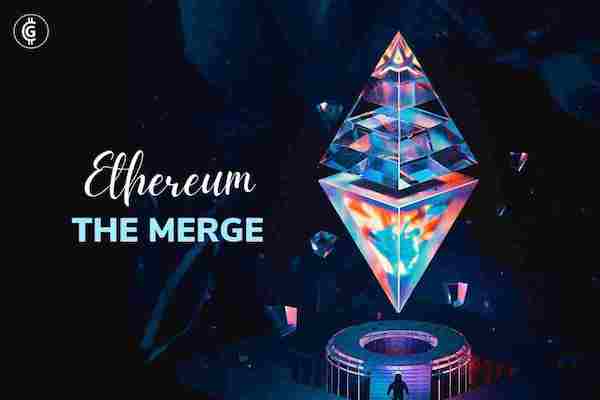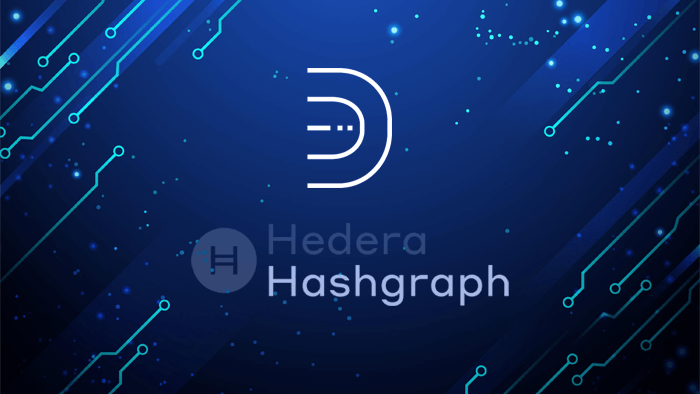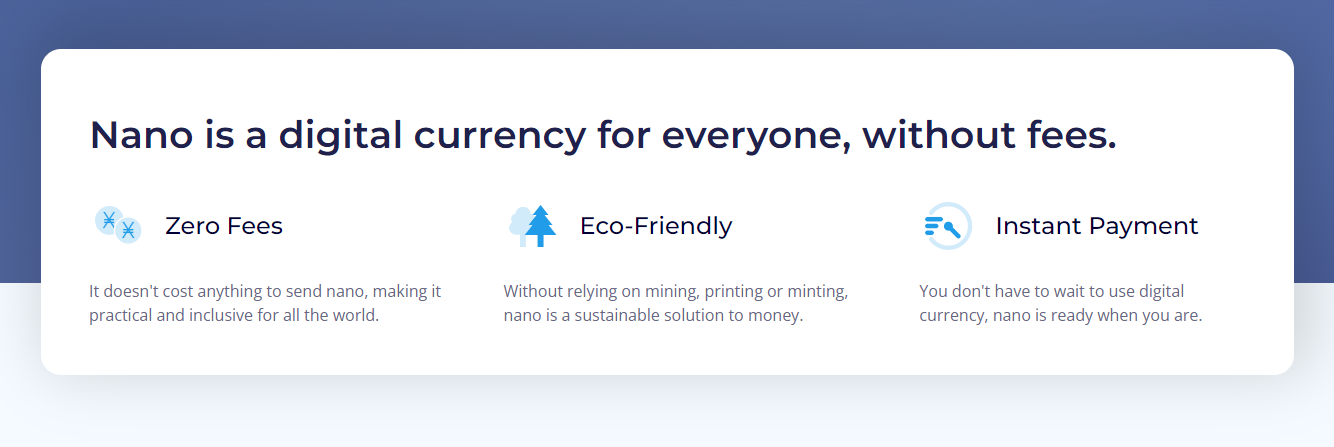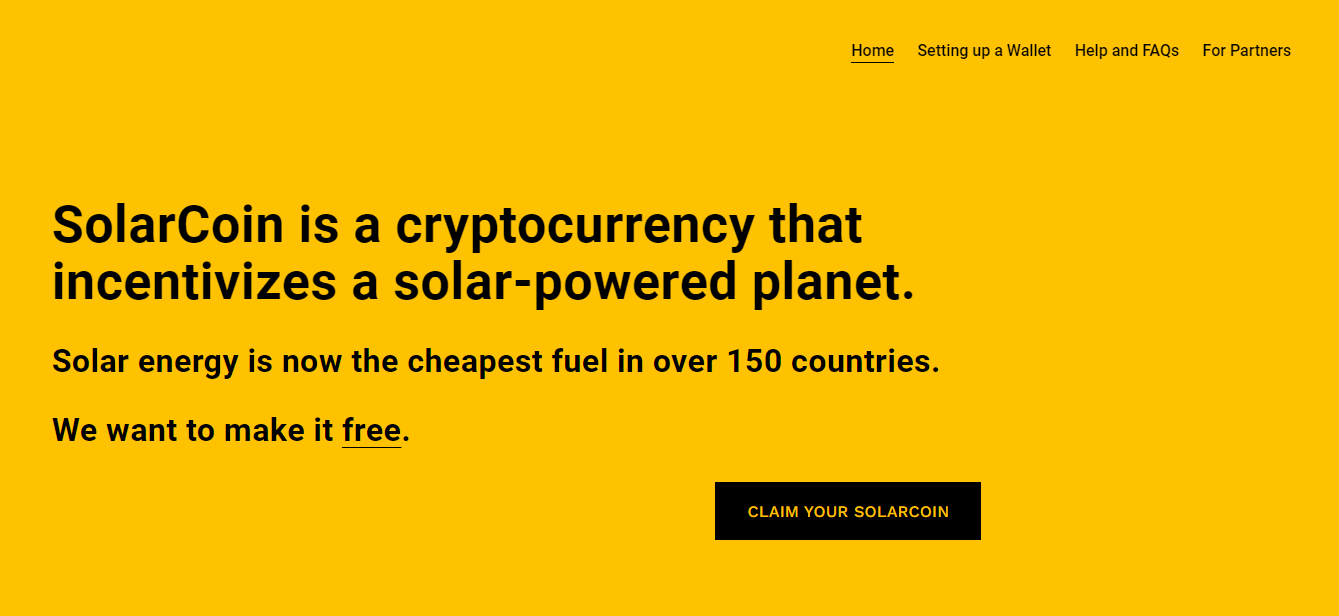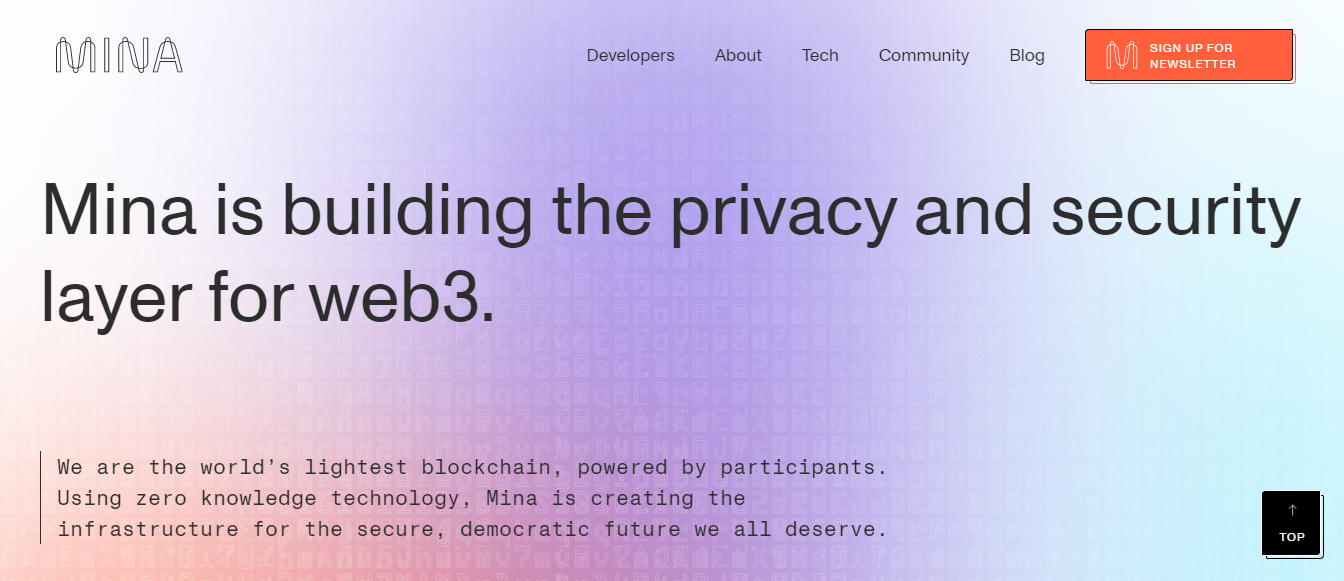Recent events, including Ethereum’s completion of the much-awaited Merge, have left investors doubting how long Bitcoin’s Proof-of-Work consensus mechanism will last in the face of other innovative projects offering “greener” crypto solutions.
Crypto mining has so far received heavy criticism because of its high energy consumption. Now, alternative, low energy-intensive models have emerged that are focused on reducing the crypto’s carbon footprint. Such projects are fast catching the investor’s eye and are set to gain more and more traction with time.
This guide looks at some of the most energy efficient cryptocurrency projects this year, how they are driving sustainability in the industry, and what environmental factors investors might consider consider before buying them.
The Most Energy-Efficient Cryptocurrency Projects in 2024
Energy-efficient cryptocurrencies are those that do not consume vast amounts of energy and have a small carbon footprint. The community surrounding some of these “green” crypto projects often participates in eco-initiatives due to their commitment to environmental well-being.
- Mega Dice (DICE) – Eco-Friendly Crypto Sportsbook
- Ethereum (ETH) – Leading Energy Efficient Cryptocurrency in 2024
- Hedera Hashgraph (HBAR) – Best Crypto Alternative to Blockchain in Terms of Energy Efficiency
- Powerledger (POWR) – Solana-Based Energy Efficient Cryptocurrency
- Ripple (XRP) – Crypto with the Lowest Energy Consumption in the Decentralized Payments Niche
- Nano (NANO) – Free Energy Efficient Cryptocurrency with Latticed Network
- SolarCoin (SLR) – Providing Incentives-Based Boost to Renewable Energy Production
- Chia (XCH) – Leveraging Space and Bandwidth for Customized Throughput
- IOTA (MIOTA) – Digital Autonomy with the Promise of Eco-Friendliness
- Cardano (ADA) – First Peer-Reviewed Energy Efficient Cryptocurrency Project
- Mina Protocol (MINA) – World’s Lightest Blockchain Powering Energy Efficient Cryptocurrency
Shifting Towards Energy Efficient Cryptos in 2024: A Closer Look
Discussions around ‘Sustainability’ and ‘Climate Change’ are among the main global agendas for this decade, and a huge directive for the blockchain industry’s future as well. This is why both investors and crypto projects strongly feel the need for reinforcing their choices with eco-friendly measures.
Crypto’s promise of accessibility, equitability and sustainability goes beyond decentralization. Projects like Bitcoin, despite being hugely successful, are being charged with inefficient energy consumption and greenhouse gas emissions, which runs counter to their fundamental objectives.
With the crypto industry now seeking to reconsider traditional practices like mining to reduce their excessive energy usage, the highlight is now on projects that are more sustainable, and more environmentally friendly.
A closer look at the 10+ least energy-intensive crypto solutions highlights their unique approaches toward sustainability, renewable resources, and performance efficiency.
Buy Energy Efficient Cryptos on eToro
Your capital is at risk.
Mega Dice – Eco-Friendly Crypto Sportsbook
Mega Dice is the first cryptocurrency-based online gambling platform on Telegram, currently available at highly discounted prices on presale. Mega Dice is built on the eco-friendly Solana blockchain instead of the more traditional Ethereum. Its focus on a smooth user experience, game variety, crypto payments, and various player rewards have drawn a substantial and devoted user base to the platform in no time.
Mega Dice is a relatively new sportsbook launched only in 2022, offering various game titles from leading providers. Its native token $DICE is available on presale, allowing early adopters to purchase and use tokens for games, sports betting, and staking rewards. The platform shows a lot of promise in terms of energy efficiency, platform security, and industry-first performance-based rewards for players.
The platform holds a Curacao license, viewed by casino experts as one of the best and most trusted licenses in the online gaming industry. Furthermore, Mega Dice is also adjudged one of the fastest growing cryptocurrency casinos by crypto analysts. The platform offers a selection of over 5,000 games across its sportsbook, casino, game shows, slots, and betting events categories, from publishers like Evolution and Pragmatic Play.
99Bitcoins discussed its potential as the next100x presale gem this year.
It has been a little over a year of the sportsbook’s launch, and it has already built a community of over 50,000 players. There are no tedious KYC requirements either before players can start enjoying games on the platform. Another attraction is the $500 welcome package that includes bonus spins and deposit bonuses. It comes as no surprise then that the $DICE presale raised more than $377K within a few hours of launch.
Ethereum (ETH) – Leading Energy Efficient Cryptocurrency in 2024
Ethereum is the world’s second-largest crypto project and needs no introduction. But what you need to know about ETH is its latest transition to energy efficiency. ETH is moving away from its energy-intensive proof-of-work (PoW) mechanism to the proof-of-stake (PoS) – a move aimed at aligning its underlying technology with sustainability principles.
This transition from PoW to PoS, called “The Merge” will reportedly lead to a drop in energy use by an overwhelming 99.95%. The Merge is taking place in two phases, the first beginning on September 6, and the second between September 10 and 20.
The Ethereum Merge is aimed at getting rid of the high-energy-consuming mining process so long used to validate ETH transactions. This eliminates the need for energy-intensive mining equipment, thus reducing Ethereum’s contribution to CO2 emissions.
Furthermore, by switching to energy efficient crypto, validators will be able to validate transactions using ordinary devices such as laptops and PCs. As a result, Ethereum is expected to be one of the best proof-of-stake coins in the long run.
Your capital is at risk.
Hedera (HBAR) – Best Crypto Alternative to Blockchain in Terms of Energy Efficiency
Hedera Hashgraph has been deemed as the cryptocurrency that can compete with the biggest payment processors in terms of the number of transactions per second.
But that is not its biggest USP. It can process substantially voluminous transactions faster while using far less energy compared to projects like Bitcoin. Besides, HBAR’s instant transaction speeds allow the project to be used for almost any practical applications that require real-time responses.
The reason behind HBAR’s strong capabilities is its unique framework which handles transactions in parallel instead of linearly. It employs its own consensus mechanism called virtual voting, as opposed to the common Proof of Work (PoW). Virtual voting sets itself apart with zero energy loss in the coin minting process.
While still providing a publicly available ledger, HBAR functions using “hash graphs” instead of “blocks” to authenticate transactions. This hash graph consensus is unique to Hedera, and is “a faster, more secure alternative to blockchain consensus mechanisms,” according to its website.
With its novel chatter about gossip protocol and virtual voting, Hashgraph enables high throughput with 10,000+ transactions per second today and low-latency finality in seconds. Once consensus is obtained, the transaction is immutable and visible to everyone on the public ledger.
Your capital is at risk.
Powerledger (POWR) – Solana-Based Energy Efficient Cryptocurrency
Powerledger is one of the few crypto projects to have a female co-founder. It was initially established in 2016-17 as an Ethereum token but has switched to the less energy-intensive Solana in 2021 to keep up with its aim of energy efficient transaction throughput.
The reason behind this transition was to take advantage of the scalability of the Solana code base, which Ethereum had still not introduced until then.
The peer-to-peer Powerledger operating system tracks the trade of energy, flexibility services, and environmental commodities on an underlying vision of the decentralized grid. When energy inputs and outputs are inconsistent, such as is the case with renewable energy like solar and wind, a centralized power grid becomes increasingly problematic.
Powerledger offers a distributed, decentralized network that enables producers to track, trace, and exchange energy in real-time, resulting in more stable and robust energy networks. Blockchain technology and POWR token in particular are critical pillars for this vision.
The customized permissioned Solana blockchain of the platform employs Proof-of-History and Proof-of-Stake (PoS) consensus methods which allow even vast transaction volumes to be faster and less energy-intensive compared to existing PoW blockchains.
Powerledger also incorporated Safecoin’s voter subset consensus to limit the number of administrative type transactions handled by the blockchain. This is helping maintain the network as more secure and energy efficient than ever before.
Your capital is at risk.
Ripple (XRP) – Crypto with the Lowest Energy Consumption in the Decentralized Payments Niche
Ripple is the “first blockchain company to pledge to be carbon-zero by 2030”, and is making the big shift to renewable energy sources for this vision.
The permissionless, decentralized cryptocurrency Ripple shuns the energy-intensive Proof-of-Work consensus for its own “distributed agreement” mechanism, which necessitates agreement from a supermajority of nodes to validate transactions.
Put simply, the process demands that most validators must approve a transaction before it can be added to a ledger. Ripple’s native digital asset XRP does not require mining, lowering the carbon footprint of technologies built on the Ledger even further.
Server company TRG Datacenters reported in April that XRP was the least energy intensive of the seven major coins it examined (the others being Dogecoin, Cardano, Litecoin, Bitcoin Cash, Ethereum and Bitcoin). It uses 0.0079 kWh of electricity each transaction, which is only 0.00112% of the 707-kWh used by Bitcoin.
Ripple also has a separate ‘Carbon calculator’ on its website that displays the network’s energy consumption relative to Bitcoin and Ethereum, highlighting that it is one of the most energy-efficient cryptos. For example, ETH uses 2.57 billion kWh of energy per year, whereas Ripple uses only 474,000.
Your capital is at risk.
Nano (NANO) – Free Energy Efficient Cryptocurrency with Latticed Network
Nano calls itself “a digital currency for everyone, without fees.” The crypto project consumes much less energy compared to Bitcoin and several other leading cryptocurrencies since it does not rely on mining at all.
Unlike other cryptocurrencies, there is no record of any chain of transactions on Nano. Instead, Nano works on an underlying technology of energy efficient block lattice. All accounts on Nano form a lattice of interconnected blocks, and every user gets more control over their own account.
The accounts are updated asynchronously, rather than requiring the use of a complete linear blockchain, as is the case with Bitcoin and others. This independence from a chain of competing transactions enables Nano to establish a sender-receiver account chain for each network user separately.
The result? Nano allows for up to 125 transactions per second, is scalable and lightweight, and despite still using a Proof of Work mechanism, it works at a minimal carbon footprint.
There are other characteristics that set the platform apart. Nano is free, which means you can send tokens at zero cost. This makes the platform accessible and inclusive for all. Nano also does not rely on either mining or printing or minting and allows instant digital currency payments.
Your capital is at risk.
SolarCoin (SLR) – Providing Incentives-Based Boost to Renewable Energy Production
SolarCoin is a unique crypto project that incentivizes users for producing solar energy, thus bringing renewable energy and energy efficiency into the limelight. The global, decentralized cryptocurrency issues one SLR for every Megawatt hour of solar energy produced by the user.
As per its website, “SolarCoin is an alternative digital currency that works like air-miles for Solar electricity generation.” In this way, the token is rewarding its community for lowering the cost of electricity production.
Introduced in 2014, the network relies primarily on people submitting paperwork to confirm energy generation, but the Internet of Things may one day automate this process with automatic updates from solar arrays.
The one-of-its-kind platform is helping conserve natural capital while sustaining an incentives scheme at the same time, tying in energy efficiency with financial gains for users. The asset also intends to provide extra incentives to solar energy producers.
Your capital is at risk.
Chia (XCH) – Leveraging Space and Bandwidth for Customized Throughput
Chia is mined using the Amazon Web Services (AWS) cloud computing technology. The project offers a more sustainable, lighter, and simpler “farming” mechanism as opposed to “mining” of other currencies.
It was founded in response to the excessive energy consumption associated with crypto mining activities and uses no specialized equipment or vast amounts of power for its farming process. Chia leverages your computer’s hard disk space and uploads bandwidth instead of energy-intensive computation. It eliminates extraneous data from blocks and only validates them as needed.
Its consensus algorithm is freely available to the public as the Mainnet blockchain transaction platform and is downloadable at chia.net.
After installing the software, you can opt to donate a portion of your uncommitted hard drive space to the network without severely hurting its speed or consuming significantly more energy. This is enabled by Proofs of Replication (PoRep) which incentivizes users to share hard disk space for network security in exchange for XCH rewards.
Established by the inventor of BitTorrent, Chia enables smart transactions using Proof-of-Space Time instead of Proof-of-Work. The parameters of space and time are adjustable as per your system’s bandwidth and storage, enabling a distributed consensus geared for efficiency and sustainability.
Your capital is at risk.
IOTA (MIOTA) – Digital Autonomy with the Promise of Eco-Friendliness
IOTA is a refreshing micro-transaction crypto project that has been designed with the Internet of Things (IoT) revolution in mind. It eliminates transaction fees and accepts even the smallest nano payments.
The platform largely employs the Fast Probabilistic Consensus and depends on the Proof of Work only partially to maintain reduced energy consumption overall.
It outperforms Bitcoin in this aspect and is only set to create new benchmarks in energy efficiency with its Atomic Transactions norm in the future, reducing transaction sizes from 1.7 KB to less than 100 bytes, which will lower energy consumption proportionately.
IOTA functions on the Tangle distributed ledger architecture that renders it free from blocks, chains, and hence mining. The platform describes itself as the future backbone of IoT, enabling tamper-proof data, micropayments with no transaction costs, and low resource requirements.
IOTA’s goal is to build a “machine economy” by enabling simple machine-to-machine transactions and connecting human and machine economies. Its innovative transaction validation model uses nodes to compare two previous transactions (called tips), reducing the amount of time and memory to validate transactions.
Your capital is at risk.
Cardano (ADA) – First Peer-Reviewed Energy Efficient Cryptocurrency
Cardano is created by the co-founder of Ethereum, and was the world’s peer-reviewed blockchain to be established and tested by scientists on evidence-based methods. The PoS consensus mechanism deployed by Cardano makes it fundamentally more energy efficient than Bitcoin, demanding users purchase tokens to join its network.
This mechanism helps save vast amounts of energy. As per a recent report, the crypto network uses only 3.103 GWh (0.0031 TWh) of power annually, considerably less than online streaming networks Netflix (94 TWh) and YouTube (244 TWh).
Based on an analysis by Finbold, Cardano (ADA) is 47,200 times more energy-efficient than Bitcoin, the flagship Proof-of-Work (PoW) cryptocurrency.
According to its website, “Cardano is a blockchain platform for changemakers, innovators, and visionaries, with the tools and technologies required to create the possibility for the many, as well as the few, and bring about positive global change.”
Your capital is at risk.
Mina Protocol (MINA) – World’s Lightest Blockchain Powering Energy Efficient Cryptocurrency
Mina Protocol is billed as the world’s lightest blockchain at only 22 KB and is a more equitable and sustainable blockchain than its competitors. It is completely independent of intermediaries and offers the significant capacity to run nodes for immediate synchronization and verification.
Mina Protocol is powered by its participants, who are all full nodes. Because Mina is lightweight, anyone may easily connect peer-to-peer and validate transactions like a complete node, assuring the blockchain’s censorship resistance and security.
This differs from traditional chains, which have grown so large that users must rely on intermediaries to run nodes, contradicting the blockchain’s original decentralization promise and making the network more vulnerable to a 51% attack.
Every Mina participant must run a node to transmit and receive transactions. To function properly, the algorithm also requires block producers and Snark workers that help in network data compression and generating transaction proofs.
Your capital is at risk.
The Verdict – Energy Efficient Crypto the Future of Blockchain?
For years now, cryptocurrency has been associated with high energy consumption for heavy computations, vast electricity usage, and depletion of fossil fuels.
Many of the world’s leading crypto projects like Bitcoin depend on energy-intensive mining for generating new currencies, verifying, and adding transactions to the public ledger.
This is putting tremendous pressure on the processing power of modern computers, boosting global warming and climate change in the long run.
This is the reason that alternative, greener cryptocurrencies are catching the community’s eye. These projects are bringing new, eco-friendly consensus mechanisms and sustainability-first incentives to the fore, reducing overall carbon footprints, and saving energy consumption.
These energy efficient cryptocurrencies are certainly paving the future of the blockchain industry, which is ever-evolving. While only time will tell which of these will sustain in the long run financially, they have certainly sowed the seeds for eco-friendly investment choices already.
FAQs
Is cryptocurrency energy efficient?
Cryptocurrencies have for long been considered energy-intensive, due to their mining processes that consume vast amounts of electricity and data. Of late, however, several green crypto projects have emerged that place due focus on alternatives to mining and use energy efficient mechanisms for cryptocurrency transactions, verification, and storage.
Is Ethereum energy efficient?
The Ethereum Merge is enabling ETH to move away from the energy-intensive mining using Proof of Work consensus, to the more environment-friendly Proof-of-Stake mechanism. This is making the crypto more energy efficient than ever before.

